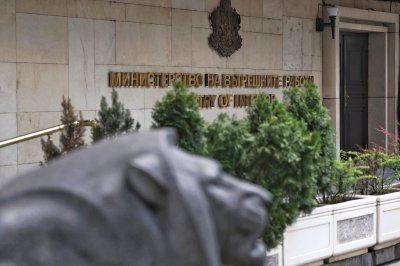The proposal for a referendum on the adoption of the euro contradicts the Constitution, European Union law, and national legislation and should be returned to President Rumen Radev, GERB-UDF said on May 12.
The parliamentary group firmly maintains the position that the referendum proposal, submitted by President Rumen Radev, violates the Constitution of the Republic of Bulgaria, EU law, and the Law on Direct Participation of Citizens in State Authority and Local Self-Government.
The constitutional provisions clearly and unequivocally state that Bulgaria participates in the development of the European Union. Once Bulgaria has signed and ratified an international treaty, that treaty takes precedence over other legislation, GERB-UDF emphasises.
In their words, the proposal to hold a referendum and the motives for it on the conditions or terms for the introduction of the euro in Bulgaria are contrary to:
1. European Union law;
2. The Constitution of the Republic of Bulgaria;
3. The Law on Direct Participation of Citizens in State Power and Local Self-Government;
With the Treaty of Accession to the European Union, Bulgaria undertook the obligation to adopt the euro upon meeting the convergence criteria, which are established by the EU institutions and not at national level. The process is not subject to a national referendum after ratification of the Treaty. Any act of the National Assembly imposing additional conditions or delaying the process would violate the principle of loyal cooperation with the EU and would be unconstitutional, the GERB-UDF stressed.
According to them, the President's proposal should not be considered by the National Assembly and should be returned to the sender.
GERB-UDF deems the President’s request inadmissible and insists that the Speaker of the National Assembly return the proposal with the following reasoning:
The Treaty on the Accession of the Republic of Bulgaria and Romania to the European Union was ratified by the National Assembly on 11 May 2005 by 231 votes in favour, 1 against and 2 abstentions.
According to Article 9, Paragraph 4 of the Law on Direct Participation of Citizens, a referendum on matters regulated by international treaties concluded by the Republic of Bulgaria can only be held prior to their ratification—that is, before May 11, 2005.
By the Accession Treaty, Bulgaria has accepted to be part of the Economic and Monetary Union from the date of accession as a Member State, but due to non-fulfilment of the convergence conditions we are a "Member State with a derogation".
For Member States with derogations, within the meaning of Article 139(1) TFEU, the derogation is temporary until the sustained fulfillment of convergence criteria. These criteria are established by the EU Council—not demonstrated at the national level. The derogation is lifted not upon request, but upon fulfillment of the conditions.
Thus, the request for an extraordinary convergence report is merely a request for verification of compliance, not for lifting the derogation. The only situation in which the euro’s adoption could be postponed is if the convergence criteria have not been sustainably met.
Any act that makes the euro's adoption conditional on factors beyond the convergence criteria undermines the EU’s goal of establishing an Economic and Monetary Union with the euro as its currency.
Such an act would constitute a formal and explicit deviation from Bulgaria’s commitment to the other Member States under the Accession Treaty, and from Bulgaria’s obligations under EU law.
Furthermore, the proposal to hold a referendum and a subsequent act, which could lead to a postponement (suspension or delay) of the euro adoption process, would be contrary to the Constitution of the Republic of Bulgaria, according to which the Republic of Bulgaria participates in the construction and development of the European Union (Art. 4, para. 3 CRB), as well as the norm that international treaties, ratified by constitutional procedure, promulgated and entered into force for the Republic of Bulgaria, are part of the domestic law of the country and take precedence over those norms of domestic legislation that contradict them (art, 4 of the CRB), add the GERB-UDF.
This situation falls within the scope of Article 9, Paragraph 4 of the Law on Direct Participation, as the issue of adopting the euro as Bulgaria’s currency is regulated by the EU Accession Treaty, ratified by the National Assembly. This is also reflected in the materials and ruling in Constitutional Case No. 13/2023. GERB-UDF concludes that the President’s proposal is is not within the competence of the National Assembly as of the date of ratification and is a matter solely within the competence of the European Council, upon verification that convergence criteria have been met and Bulgaria’s status as a "Member State with a derogation" has been lifted.








 Чуй новините
Чуй новините Подкаст
Подкаст























